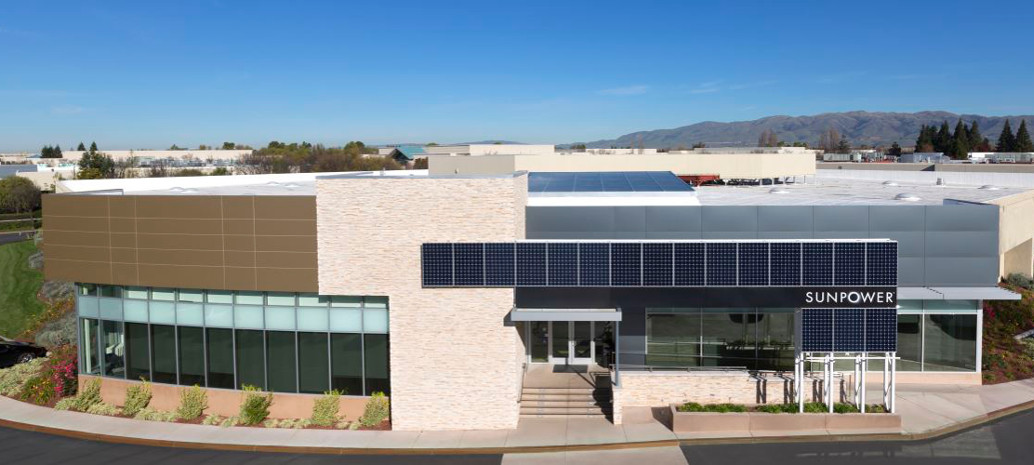The emerging solar market environment of collapsed prices for both PV modules and contract prices has not been kind to SunPower, which makes the highest efficiency PV modules available at scale on the market.
SunPower reported yet another quarter of significant losses during Q1, with revenues climbing 4% year-over-year to $399 million but a net loss of $134 million. While this is better than SunPower predicted, the company has not turned a profit in more than a year and a half.
Fortunately for SunPower, it has a good friend in its majority owner, French oil giant Total. During the call SunPower revealed that Total has given a guarantee for $100 million of SunPower’s $300 million revolver, as the latest financial lifeline that Total has supplied.
SunPower is currently undergoing both a restructuring and a shift in strategy. After closing factories in the Philippines, SunPower has moved production to Mexico. The company is moving forward on a joint venture to build its new P-Series modules, which feature overlapping cells, at a new massive facility in China which will have a final capacity of 5 GW.
The P-Series is lower in cost than SunPower’s back-contact technology, and is intended for deployment in utility-scale projects in less developed nations. By the end of Q1 SunPower had reached 400 MW of annual P-Series production, and intends to continue ramping, stating that its yield, output and cost targets are being met.
SunPower also notes that its new joint venture with Dongfang Electric and Zhonghuan Semiconductor will give it certain advantages. “It gives us access to the world’s largest solar market, and gives us access to the world’s largest supply chain,” noted SunPower CEO Tom Werner on the company’s results call.
The Donfang/Zhonghuan joint venture is currently operating a 1.2 GW mono-PERC cell manufacturing facility, which gives SunPower a steady supply of cells, and the company plans to produce a mono-PERC “P-19” module starting in the second half of this year.
Despite these manufacturing investments, Werner says that SunPower is working on decreasing its capital intensivity and returning to a focus on cash generation and simplified financials. The company notes that the P-Series is a step in that direction, as the product can be deployed with a smaller capital outlay.
SunPower is clearly struggling with record low prices for solar power contracts, a trend which it does not expect to let up in the near future. The company has shown an interest in Latin America for its utility-scale business, but noted very low power contract prices in Mexico, which reported a new record low price of $267 per megawatt-hour earlier this year.
Despite the restructuring and talk of focus, SunPower appears to be as diverse a company as ever. SunPower is retaining its presence in the residential market, and states that its international business in Japan and Europe is proceeding ahead of plan. More than 80% of residential orders during Q1 were for its fully integrated Equinox solution, which includes microinverters.
SunPower is having even more success with its Helix platform for the commercial and industrial sector, which represented 100% of its new business. The company also notes an increasing number of orders for solar plus storage solutions.
Nor does the move to P-Series mean that SunPower is abandoning its high-efficiency back-contact technology. SunPower reports that it is regularly achieving cell efficiencies above 25% for its Maxeon cells at its Fab 4, and is working on a further development of lower-cost back contact technology in its research labs.
It is also not clear what SunPower plans to do with yieldco 8point3 Energy Partners now that its partner First Solar is leaving the business.
But while its technology improves, SunPower is also predicting that its margins will recover over the course of 2017. Regardless, during the second quarter SunPower is predicting additional losses of $110 to $135 million, against revenues of $275 to $325 million.
Over the full year SunPower is more vague, predicting revenue of $1.8 to $2.3 billion and a positive operating cash flow, but not providing more specific guidance on profitability.
This content is protected by copyright and may not be reused. If you want to cooperate with us and would like to reuse some of our content, please contact: editors@pv-magazine.com.



“The company has shown an interest in Latin America for its utility-scale business, but noted very low power contract prices in Mexico, which reported a new record low price of $267 per megawatt-hour earlier this year.”
Do you mean $26.7 per megawatt-hour?